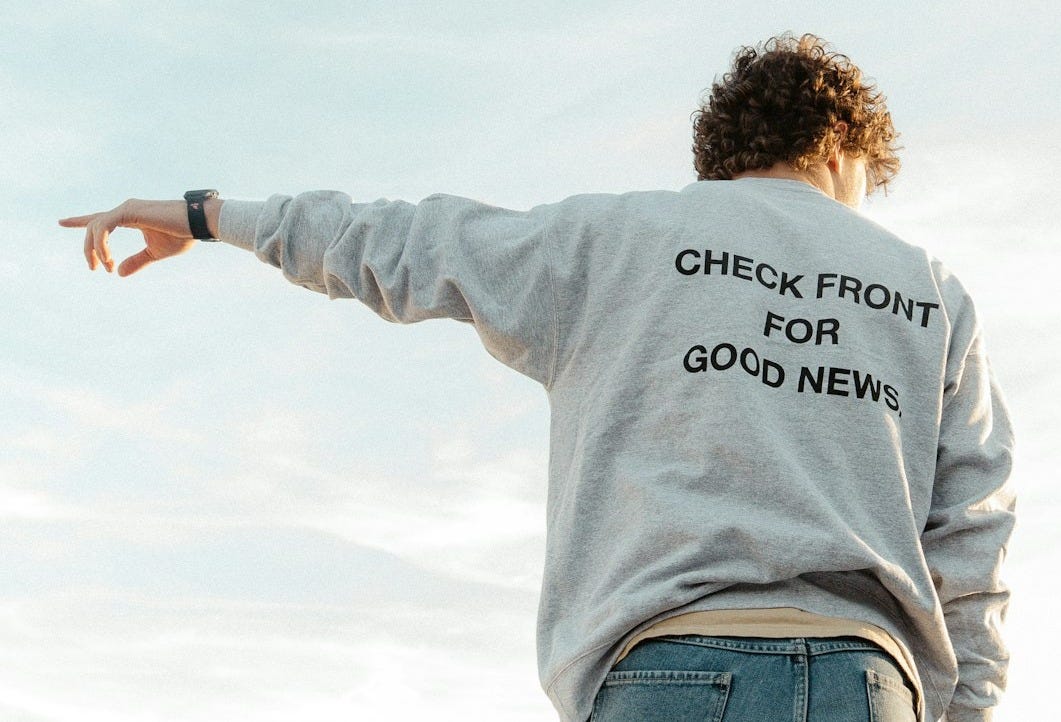It's a Redirection Economy: Opt-Out Part 2
Americans aren't just opting out—they're in the process of redirecting billions in spending, creating permanent shifts that will reshape business for years to come
Wow—we had no idea so many of you would connect with last month's 'Opt-Out Economy' post. We got hundreds of direct messages saying, "This is exactly what I'm doing," which got me curious: just how deep does this consumer shift run?

So we went into the field and dove into the boycotts, which were just featured in The Guardian: Exclusive: 20% of Americans support boycotting firms aligning themselves with Trump's agenda.
This isn't just people opting out - it's a full-blown Redirection Economy.
Watch John and I unpack 10 slides behind the Redirection Economy. Download the report here.
Youth Boycott Nation
Our latest Harris data shows that 53% of Gen Z and 46% of Millennials are now actively participating in coordinated economic boycotts, and many plan to continue indefinitely.
Here are the top boycotted businesses:
When conviction outweighs convenience on this scale, businesses need to pay attention to where those billions in spending are going instead.
The Triple Threat Accelerating Consumer Rebellion
Our latest research uncovers a perfect storm of three forces creating unprecedented motivation for permanent spending shifts:
Three Years of Economic Cortisol: Economic anxiety has remained Americans' constant companion since 2022, hovering at 85% concern while other crises peak and valley. Look at any graph of American anxieties over the past three years, and economic worry forms an unbroken line at the top.
Bracing for Impact: 76% of Americans are actively concerned about a potential recession, 73% worry about affording basic living expenses, and 72% fear tariffs will push prices even higher. This isn't theoretical anxiety—it's driving real behavioral change right now.
Rights Under Pressure: 67% of LGBTQIA+ Americans believe their rights are becoming more compromised, 58% of women fear growing restrictions on their rights, and 57% of BIPOC Americans feel their rights are under threat.
When economic stress combines recession fears and concerns about fundamental rights, consumers aren't just making different choices—they're creating entirely new relationships with spending.
The Loyalty Divorce: Not Just Shopping Elsewhere
"Recovering Target girlie, but it feels good to stand for what's right. Standing firm too."
These comments are what we're calling "The Loyalty Divorce." Consumers strategically withdraw financial support from brands they once loved, creating a kind of consumer grief where both shoppers and retailers feel the sudden break in relationships.
What's particularly revealing is why consumers are redirecting their dollars:
These aren't casual shopping choices—wallets are becoming weapons to demand corporate attention. This goes beyond traditional "voting with dollars"—it's consumers using economic leverage as perhaps their most effective channel to be heard in a system where other feedback mechanisms have failed them.
Whiplash Causes Lasting Injuries: The Cost of Brand Inconsistency
Value-switching is costing brands dearly as consumers end relationships with companies whose actions contradict their stated values. Nearly a third (32%) of Gen Z don't shop at their favorite stores anymore because of the companies' politics—significantly higher than the national average of 24%.
When we dig deeper into why these breakups are happening:
48% of Gen Z say companies are more focused on profits than customers
44% of Gen Z say brands no longer reflect their original core values
37% of Gen Z cite ethical concerns or questionable practices
Gen Z Women Leading the Charge
As we noted in the original Opt Out Economy post, Gen Z women are at the vanguard of this movement. Our updated numbers confirm this trend is accelerating: 46% of Gen Z women say they have "no interest in supporting the economy this year"—nearly 20 points higher than their male counterparts (28%).
This isn't just selective shopping—it's calculated economic leverage. When 55% of Gen Z women report completely shifting their spending patterns to align with their morals, they're exercising the most powerful tool they have in a capitalist system.
But Here's What Everyone Misses
After analyzing these early indicators, there are three critical patterns that most businesses are overlooking:
Want to see all the data in one place? Download our complete 10-slide deck on the Redirection Economy
1. Today's boycotters are tomorrow's core customers
Nearly half (49%) of Gen Z is Black, Hispanic, AAPI, or multicultural, and lifetime brand preferences form between ages 18-25. A recent Bank of America report shows Gen Z will become the richest generation by 2035. The demographic leading today's boycotts represents the future core consumer base for most brands.
2. The money isn't vanishing—it's being redirected
Gen Z plans to support local businesses more (40%), reduce overall consumption (38%), and seek values-aligned brands (28%). Winners in this new environment include local economies, thrift stores, secondhand ecosystems, and clear value brands like Costco.
3. This isn't just another boycott cycle—it's a permanent shift
What makes today's redirection economy different from previous cycles of value-based purchasing is its planned permanence:
37% of Gen Z boycotters say they plan to continue indefinitely or until specific company changes are made
32% of Gen Z don't shop at their favorite stores anymore because of the companies' politics
A quarter of Gen Z, Millennials, and People of Color are changing their consumption habits permanently
When nearly a third of Gen Z say, "I don't shop at my favorite store anymore because of their politics," we're not talking about casual brand-switching—we're witnessing people abruptly abandoning places they genuinely loved, sometimes for years. This isn't a temporary trend—it's a fundamental reset in how consumers engage with brands.
From Hero to Villain: Business's Rapid Fall From Grace
Perhaps most concerning for large corporations is that we're tracking a complete reversal from over a decade of businesses being seen as the white knight in shining armor.
Back in 2022, 75% of Americans believed large companies were vital to America's future, and 60% saw companies as more reliable than the government in addressing societal problems.
Today, Americans equally blame corporations and politicians (both at 50%) for higher prices. Meanwhile, 44% report their opinion of American companies has recently worsened, citing price increases beyond inflation and unethical behavior.
The public goodwill companies once took for granted appears to be evaporating—potentially rewriting consumer engagement for years to come.
What This Means For All Of Us
In what we're calling the redirection economy, consumers aren't just shifting their shopping habits—they're redefining their relationship with consumption itself.
For all of us navigating this new landscape—as consumers, business leaders, or simply observers of culture—the message is becoming clearer: spending is increasingly an expression of identity and values, not just necessity or convenience.
The question worth asking isn't just "where is the money going?" but "what future are we collectively building with our dollars?" Because in the redirection economy, every transaction becomes a small vote for the world we want to see.
I'd love to hear your thoughts. Has your relationship with spending changed recently? Are there brands you've divorced or new ones you've embraced? The conversation continues...
Also, if you found this analysis valuable, download our complete 10-slide deck that captures all the data behind the Redirection Economy. Feel free to share it with colleagues who are navigating these shifting consumer landscapes.
_________________________________________________________________________
Curiosity is contagious; if you like this newsletter, please share it!!
Penned by Libby Rodney and Abbey Lunney, founders of the Thought Leadership Group at The Harris Poll. To learn more about the Thought Leadership Practice, just contact one of us or find out more here.
Thanks for reading The Next Big Think! Subscribe for free to receive new posts and support my work.


















I've been shifting my spending values for the last several years to support businesses that more closely reflected my values or had more sustainable practices, and I'm so thankful that we haven't fully moved to judging people for still using Amazon or going to Target or Walmart - because i may not want them in charge of my government but I DO want them to be points of accessibility for those who need them. As long as I am financially and physically able, I can take pride in being able to practice my own values in the way I shop
Shifting my spending habits towards those not aligned with this government also gives me a feeling that I can control a very small piece of the narrative. I’m actually able, along with like-minded people, to signal absolute disgust with businesses making dirty money from crooked politicians!